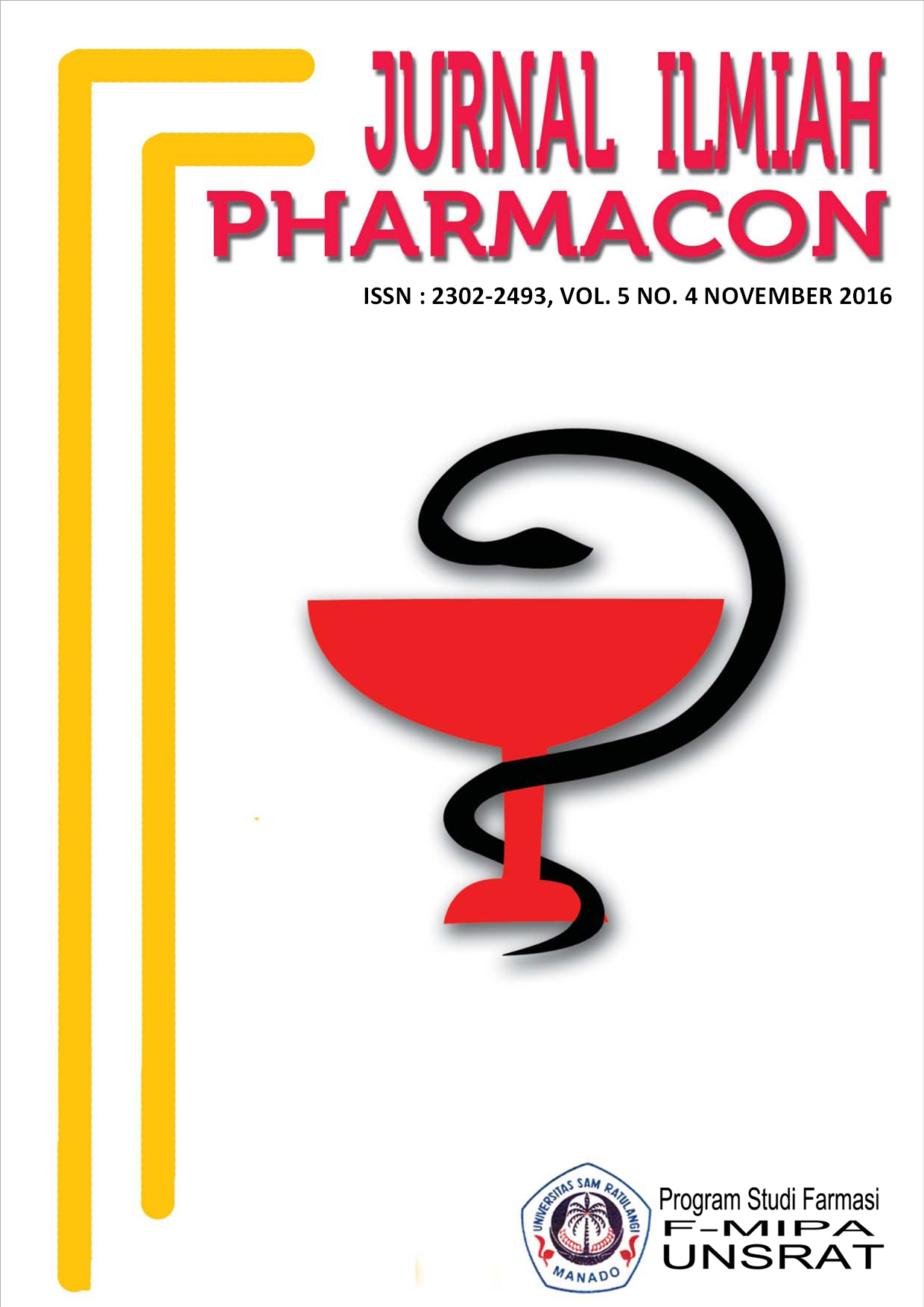AKTIVITAS ANTIBAKTERI EKSTRAK BIJI KOPI ROBUSTA (Coffea canephora) TERHADAP BAKTERI Escherichia coli
DOI:
https://doi.org/10.35799/pha.5.2016.14008Abstract
AKTIVITAS ANTIBAKTERI EKSTRAK BIJI KOPI ROBUSTA (Coffea canephora) TERHADAP BAKTERI Escherichia coli
Hizkia Alesta Tanauma1), Gayatri Citraningtyas1), Widya Astuty Lolo1)
1)Progam Studi Farmasi Fakultas MIPA UNSRAT Manado, 95115
Â
Â
ABSTRACT
The purpose of this study is to test the antibacterial activity of robusta coffee seed extract against bacterium Escherchia coli. The extraction method using maceration with solvent ethanol 96%. Antibacterial activity test was done by using pitting method. The results showed that robusta coffee seed extract has antibacterial activity. Effective concentration to inhibit bacterium Escherchia coli extract at concentration of 10%, 50% and 100%. The results showed that the geater concentration, the geater the inhibitory zones are formed.
Keywords : Caffea canephora, Escherchia coli, antibacterial, and agar diffusion
ABSTRAK
Telah dilakukan penelitian yang bertujuan untuk menguji aktivitas antibakteri ekstrak biji kopi robusta terhadap bakteri Escherichia coli pada konsentrasi 10%, 50% dan 100%. Ekstraksi menggunakan metode maserasi dengan pelarut etanol 96%. Pengujian antibakteri menggunakan metode difusi agar dengan cara sumuran. Berdasarkan hasil penelitian, ekstrak biji kopi robusta dapat menghambat bakteri Escherichia coli. Konsentrasi 10%, 50% dan 100% ketiganya memberikan zona hambat yang berbeda. yaitu semakin besar konsentrasi eksrak biji kopi robusta maka semakin besar zona hambat yang terbentuk.
Kata kunci : Coffea canephora, Escherichia coli, antibakteri, difusi agar.
.
Downloads
Published
How to Cite
Issue
Section
License
Authors who publish with this journal agree to the following terms:
- Authors retain copyright and grant the journal right of first publication with the work simultaneously licensed under a Creative Commons Attribution-NonCommercial 4.0 International License that allows others to share the work with an acknowledgement of the work's authorship and initial publication in this journal.
- Authors are permitted and encouraged to post their work online (e.g., in institutional repositories or on their website) prior to and during the submission process, as it can lead to productive exchanges, as well as earlier and greater citation of published work (See The Effect of Open Access)










